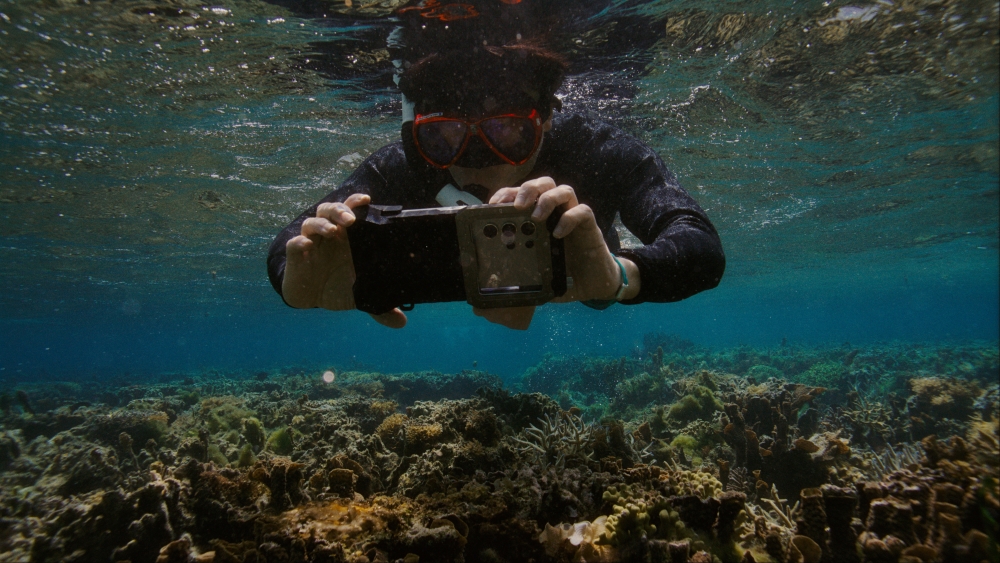The self-driving, artificially intelligent, infinitely connected future - Talk Mobile
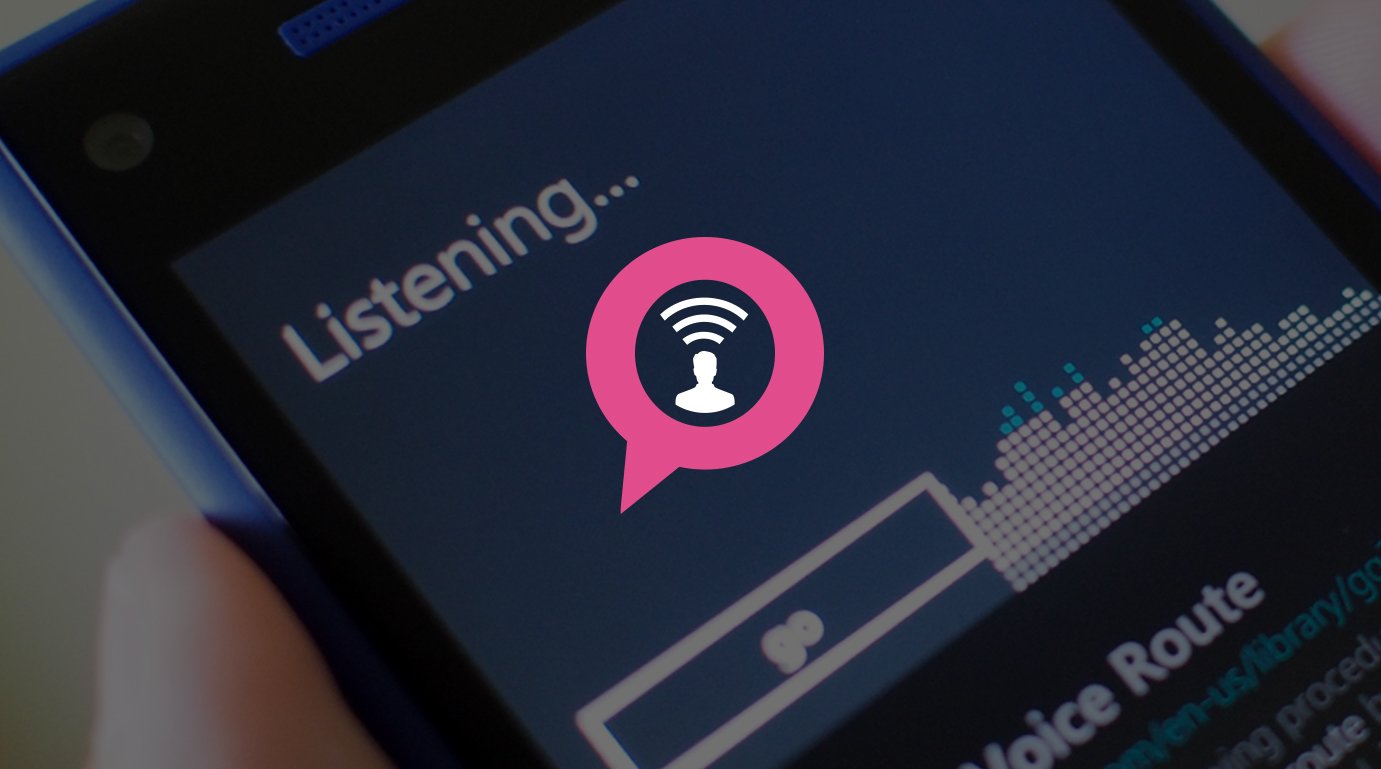
Presented by Blackberry
Talk Mobile Connected
The self-driving, artificially intelligent, infinitely connected future
by Rene Ritchie, Daniel Rubino, Kevin Michaluk, Phil Nickinson

There's one thing we can be almost certain of in the years to come: we're going to wear and carry more tech with us every day. Our smartphones will be more powerful, our watches smarter, and our glasses more connected. We'll carry sensors and radios everywhere, and they'll collect more data than ever before. But what are we going to do with that, where are we going to access it all, and how will we be entertained by it?
Increased connectivity and more devices mean new challenges to be faced. How are we to overcome the restrictions of our packet-driven internet system in order to move television from switched digital transmission to IP? How are we going to build watches that are smart enough to be useful, but still small enough to not be cumbersome, and well-designed enough that we're willing to wear and use them?
How are we going to get to a point where we have displays everywhere with an omnipresent artificially intelligent computer assistant following us everywhere and anticipating our needs? How are we going to meet the challenges of terrain, signage, weather, and - most of all - human drivers to make driverless cars a reality? It's time to talk about the connected future.
Let's get the conversation started!
Be an expert in 5 minutes
Get the latest news from Android Central, your trusted companion in the world of Android




Connected future
Articles navigation
- IPTV
- Smartwatches
- Video: Georgia
- Digital assistants
- Video: Derek Kessler
- Self-driving cars
- Conclusion
- Comments
- To top
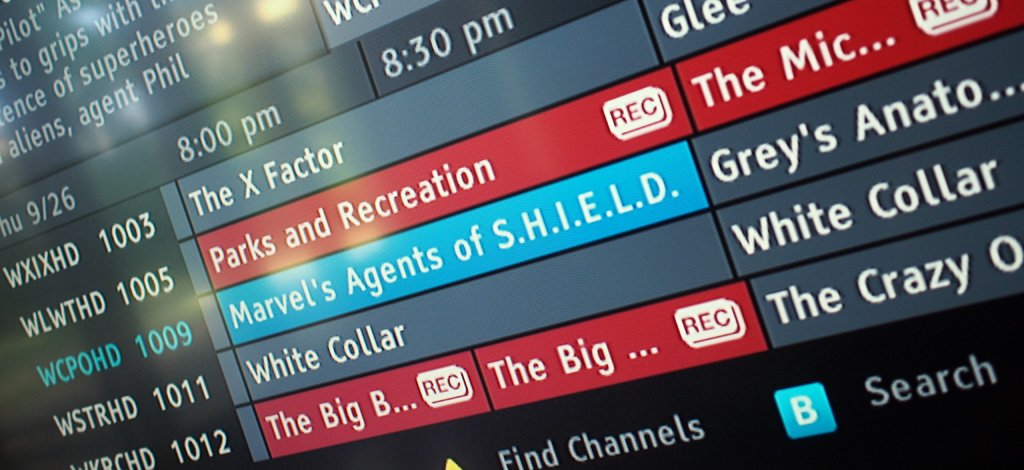

In the future all television will be delivered over the internet
By Daniel Rubino
The promise behind IPTV is relatively simple: move your television over to a web connection and you can have greater flexibility in how you watch TV. Right now a cable television signal runs at around 3-5Mbps per channel - there's tremendous bandwidth in our networks that's being taken up by television signals. Moving TV over to IP can free up a massive amount of bandwidth, leading to greater bandwidth for everybody, plus flexibility in how you allocate all those Mbps. Want to record five shows at once and have slow internet for an hour? Cool, IPTV can do that.
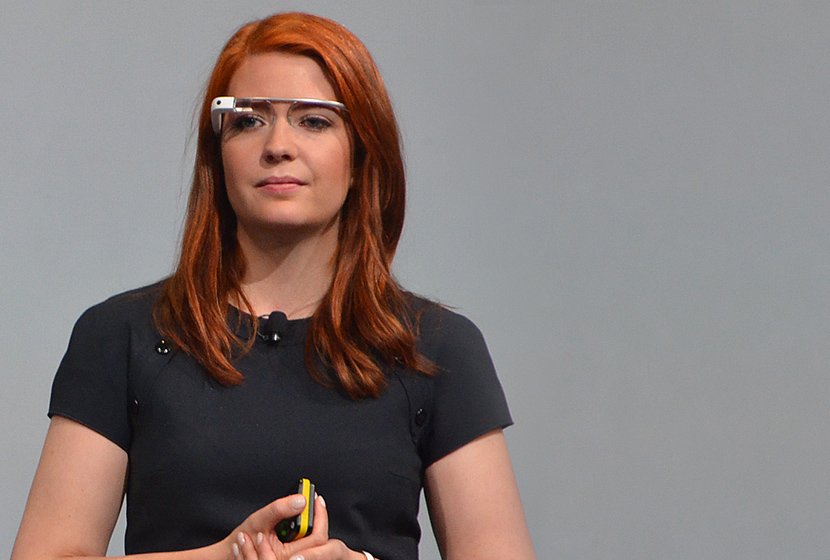
Real-life Google goggles
At I/O 2012, Google unveiled Google Glass, a head-worn computer with a small display over one eye. Glass pairs with a user's smartphone over Bluetooth to act as a notification display, navigator, and search portal, using a combination of microphone inputs and a touch-sensitive trackpad on the unit's side to accept user input, plus a blink sensor to track the user's eye.
Glass also includes a 5 megapixel camera, allowing wearers to record point-of-view photos and videos. Glass runs a modified version of Android 4.0 and can run specially-developed "Glassware" apps. Google apps like Gmail, Maps, Google Now, and Google+ are obvious entries, and are joined by apps built with the Mirror API from Evernote, CNN, Elle, and more.
IPTV also allows for great interactivity, from basic program guides to overlaying web content on video feeds. Whether or not that's something that people actually want is up for debate, but it's something cable companies are pursuing, even if in a limited hybrid fashion.
For most of the developed world IPTV might as well not exist.
Does it have a future? Perhaps. For most of the developed world IPTV might as well not exist, at least as a form of comprehensive television delivery. There are plenty of web-based on-demand services like Netflix, Hulu, and the like, but actual IPTV? It's taking hold in Eastern Europe and emerging markets like Asia. The country with the greatest lead in IPTV? France, where as of 2012 more than 1/4 of homes received their television via IP.
Interestingly, since much of the global tech media is driven by Western interests, IPTV will remain under the radar for the foreseeable future - even if it's the kind of stuff that Western tech media loves to salivate over. Old-style telecoms and cable providers have much power to leverage against any emerging IP-based competitor, even though these same industries may leverage IPTV with their own hybrid systems for an improved user experience.
But due to its low cost infrastructure and in turn, low cost subscription rates, IPTV will continue to fuel media expansion in emerging markets. It's just that a lot of us won't notice.
Talk Mobile Survey: The state of mobile connectivity
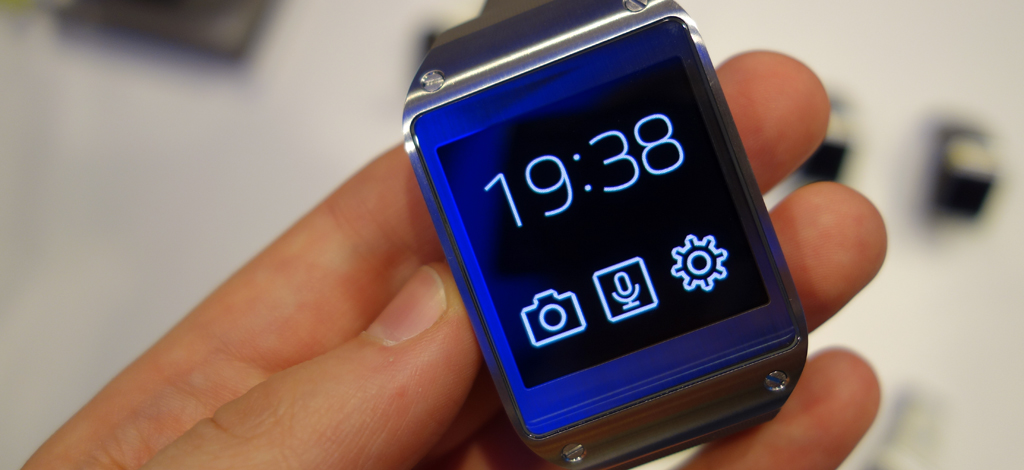

Give me the smartest of watches
By Kevin Michaluk
Smartwatches. According to the consumer technology space in the past year, they've been the next big thing. Smartwatches have been around for a while - Microsoft's SPOT connected device model delivered data over FM radio to Fossil, Suunto, and Tissot watches. In 2004.
Motorola, too, had a smartwatch, though the MOTOACTV came out in 2011 and paired with a smartphone. BlackBerry paired up with InPulse in 2009 for a smartwatch, and its makers eventually went on to launch Pebble - an iOS- and Android-compatible follow-up in early 2013. But why is that suddenly everybody from Samsung to LG to Microsoft to Sony is working on a smartwatch?
Because Apple is rumored to.
It may be cynical to say that. But there's no denying no doubt that Apple's been a trendsetter in consumer technology over the past several years. The iPhone ushered in the era of capacitive screen slate smartphones, the iPad showed how to build a tablet people will buy, and now Apple's competitors fear that they'll release a smartwatch and it'll take them years to catch up. Again.
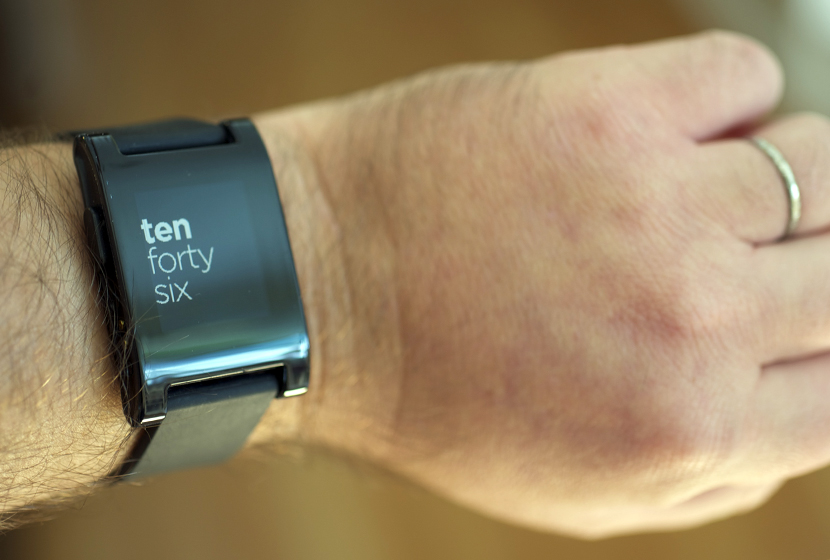
The people's smartwatch
After working the venture capital process for $375,000 in funding, Pebble Technology turned to Kickstarter in April 2012 to raise additional funding (and awareness) for their Pebble smartwatch. The funding goal was set at a modest $100,000: 870 pledgers at the $115 Kickstarter backer pricing. Afters 37 days of funding, Pebble smashed Kickstarter records with more than $10 million in pledges from 68,929 backers.
Pebble uses a low-power ePaper display and pairs with Android and iOS phones over Bluetooth, and gets 7 days on a charge. In addition to telling time, Pebble can act as a fitness distance tracker, golf rangefinder, and music controller, and displays notifications for email, callers, social networking, and more from the paired phone.
Of course, everybody's working on a smartwatch, whether or not they've publicly said so, or already released or unveiled it, like Sony and Samsung.
The question we have to ask is what can these smartwatches do for us, and do they make it any easier? Thanks to the ever-shrinking size of sensors, processors, radios, and other components, building a decent smartwatch is easier than ever. It's the smart part that's hard.
What can these smartwatches do for us, and do they make it any easier?
User interface design is hard enough on a 4-to-6-inch smartphone. When you're working on a 1.5-inch screen it's a different game entirely. Apple's iPod Nano, for example, has a touch screen, but doesn't work much like their iOS handhelds. The Samsung Galaxy Gear's user experience is very different than that of the Galaxy S4 or Note 3.
There's also the matter of what it does. Should it just forward notifications from your phone, or are there things the watch should do on its own too? Should it be a fitness tracker or a navigator or a phone handset (wristset?) in addition to telling the time? And how do you make it so the battery lasts for days without recharge?
There are a lot of hurdles to overcome - hardware, software, and design - but I think smartwatches will get there eventually. It remains to be seen whether or not it'll be something I want to wear. And I love watches!

There are a whole bunch of things that we haven't really gotten right about smartwatches.
Georgia / Host, ZEN & TECH
01
What would your ideal smartwatch do?
876 comments
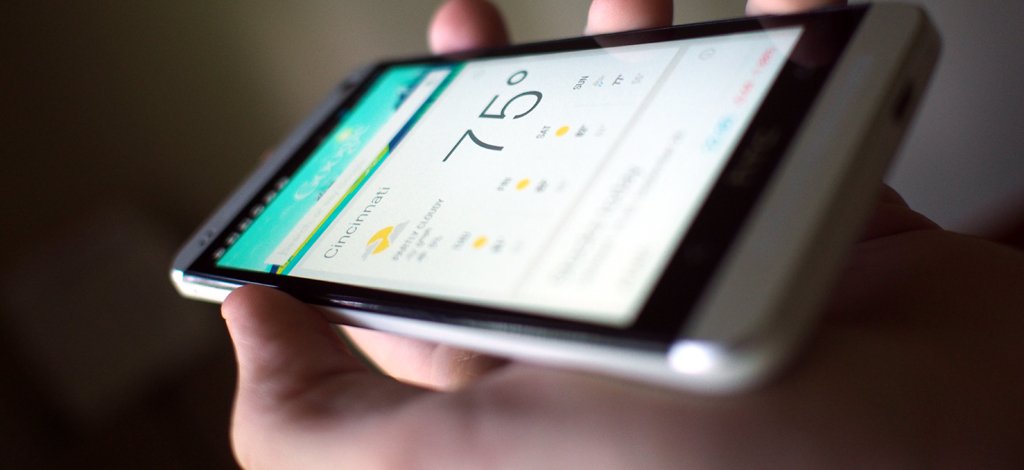

Someday we'll all have intelligent digital assistants
By Rene Ritchie
I have seen the future and its name is Jarvis. No, not the human butler of the Iron Man and Avengers comic books, but the artificially intelligent assistive computer presence by the same name almost magically brought to "life" in the Iron Man and Avengers movies.
And no, not because he helps see the hot reporter out in the morning or helps build armor capable of taking on an alien invasion, but because Jarvis totally fulfills the two most important requirements of an artificially intelligent assistive computer presence - he has a personality and he gets things done.
Apple's Siri is the closest we have to the former. Siri is like a Pixar character that lives in our pocket, helps us out, and cracks wise while doing it. Google Now is the closest we have to the latter. It knows where we are, what's on our schedule, who our friends and coworkers are, what the weather's like, and it tells us what we need to do, just before we need to do it.
Siri isn't nearly as prescient as Google Now, and Google Now has the personality of… well… nothing.
But Siri isn't nearly as prescient as Google Now, and Google Now has the personality of… well… nothing. Neither exists very far beyond our mobile devices, at least not yet. iOS in the Car and Siri Eyes Free are going to start changing that with the cooperation of car manufacturers, broadcasting Siri into our car's systems, but that's' still Siri on our phones. Google's working to spread Google Now elsewhere, with integration with their Chrome browser seemingly on the horizon.
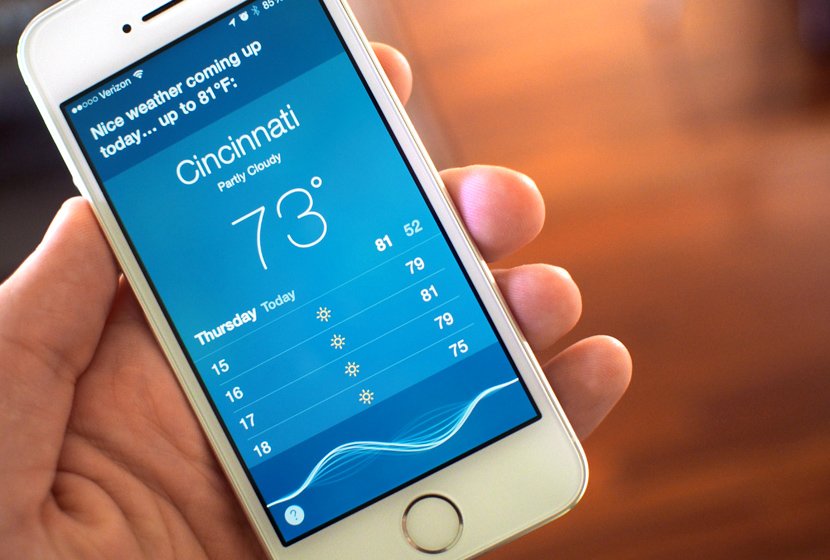
Ask Siri a question
Siri arrived in the iOS App Store in 2010, bringing an interactive voice assistant to Apple's iPhone, with plans for Android and BlackBerry too. Those plans were canceled when Siri was acquired that year by Apple, which went to work integrating the service into iOS.
First implemented in iOS 5.0, Siri is accessed by holding the home button. It responds using data from Yahoo Weather, OpenTable, MovieTickets, Wolfram Alpha, Wikipedia, and other services. The voice recognition and responses are handled using software from Nuance. When Siri can't answer a question, it offers to search the web with Microsoft Bing. Siri is notable for its ability to participate in context-based conversations with users.
In theory, in the next few years, Siri and Google Now could find themselves on screens all around our lives, not just on our phones and tablets. Apple and Google aren't the only ones working on this - Microsoft is tackling voice controls on the Xbox One and Windows Phone, and Motorola's tweaked Google Now to be always listening, ready to respond to our voice just like Jarvis.
Like most technologies, it'll take time and be hugely expensive to develop. And the app that makes Iron Man-class battle armor will probably always require billions of dollars to go with it. But most of the stuff, for most of the people, from handling security to appliances, communications to gaming, should be coming sooner rather than later.
The mansion on the oceanside cliff may not be ours, but a Tony Stark-style Javis-powered house could absolutely be on the horizon.
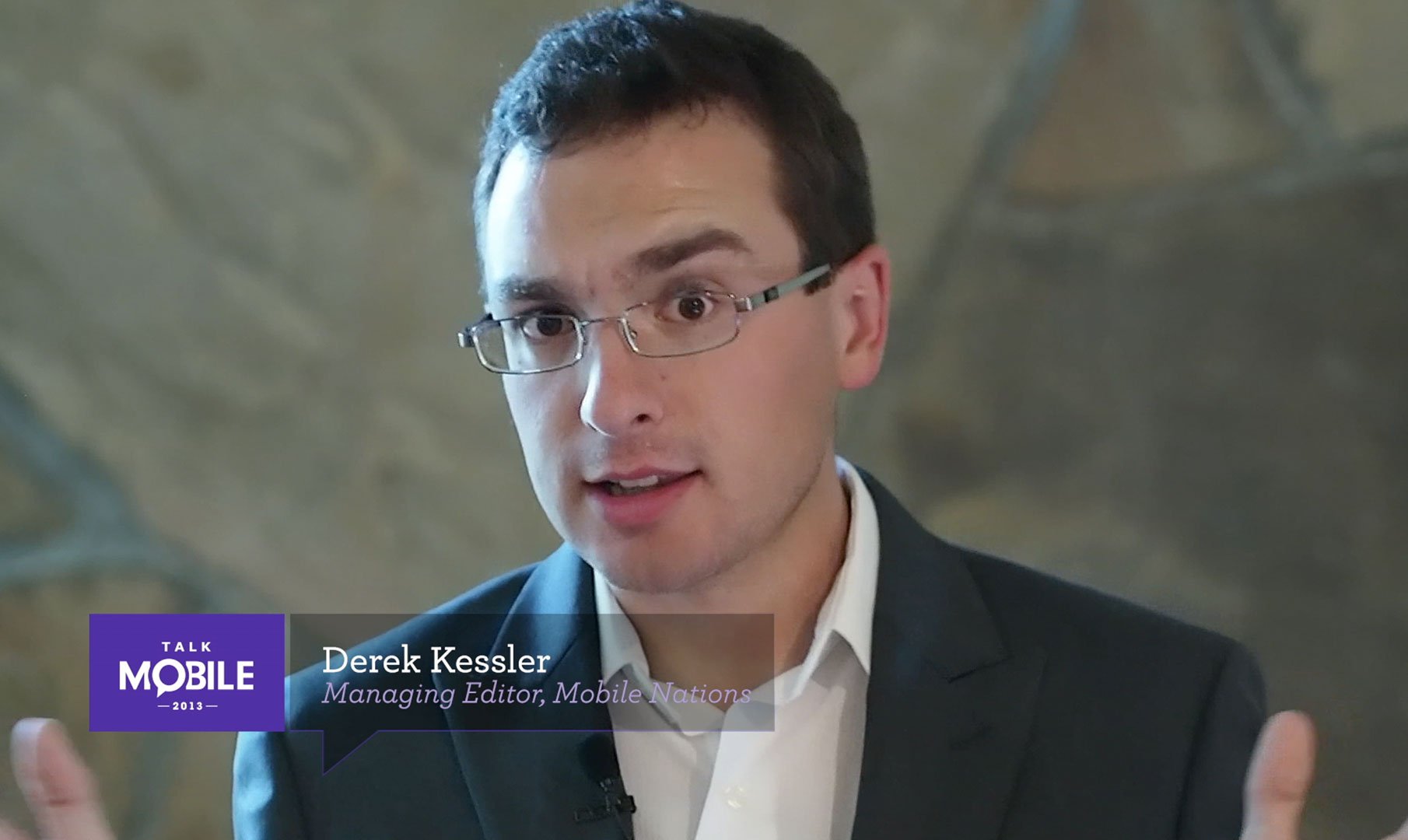
It's still a ways off, but the Tony Stark house is becoming more and more of a reality with every passing day.
Derek Kessler / Managing Editor, Mobile Nations
02
Should digital assistants focus more on answers or prediction?
876 comments
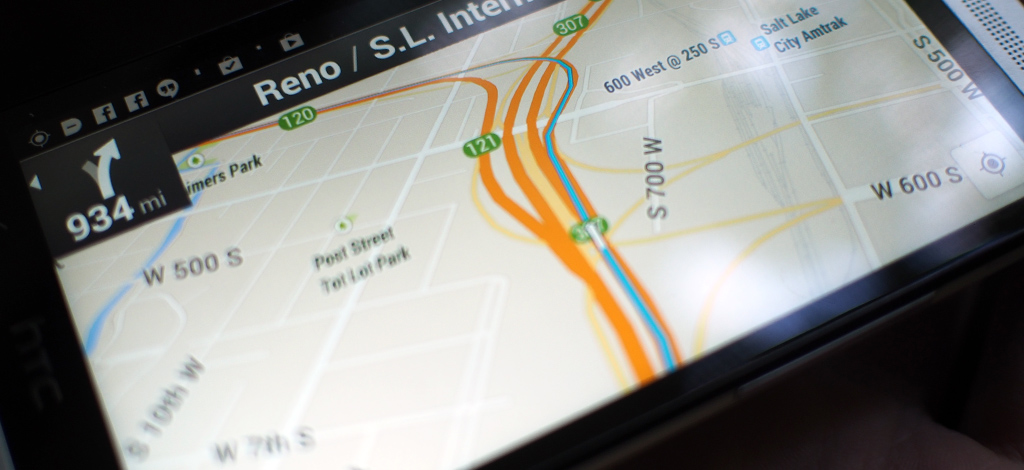

I just want to kick back, relax, and ignore the road
By Phil Nickinson
We'll all either get used to self-driving cars with little fanfare, or all die in a fiery crash. Right?
There's really no reason we couldn't have self-driving cars. The technology isn't all that difficult, when it comes down to it.
What's tougher is handing over the wheel to someone — something, really — that's more capable, safer, and better equipped to make split-decisions than you or I. It's a trust thing.
I like to drive. I like the feel of the wheel. The way you can feel the road through the tires, up through the chassis and ultimately into your fingers. The way you can move your barely turn hands and feel a couple thousand pounds of vehicle move at your command. I like the way just a little extra pressure on the accelerator can be felt through your whole body.
Who would want to give that up?
Me, for one.
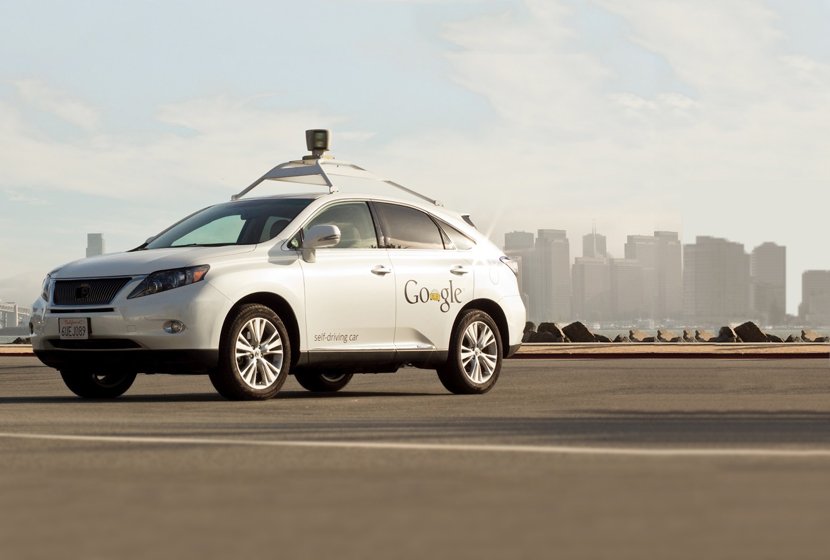
300,000 autonomous miles
Over the past few years Google has equipped a small fleet of cars with sensors and computers (totalling $150,000 per car) for autonomous driving. The cars monitor the road, maps, signs, and traffic to drive without direct human control. The system can pilot the cars through any driving situation, including highways and city traffic.
The self-driving cars have logged more than 300,000 total miles. Each test has an experienced driver in the driver's seat in case something goes awry and a Google engineer in the passenger seat. The cars have had two accidents - one while under human control, another where an autonomous car was rear-ended at a stoplight. Google's also used a car to drive a legally-blind man through a drive-thru and to pick up his dry-cleaning.
Image Source: Google
I also love the idea of making a 200-mile drive down I-10 without having to touch the wheel. I can kick back, ignore the same scenery I've seen my entire life and do something else — all at higher speeds than I could safely drive.
I love the idea of more controlled traffic flow. Get the cars all up to speed, safely spaced, and let the computers manage things. I love the idea of taking the wheel out of the hand of someone who had a bad day at work. Or one drink too many. Or is just a crappy driver.
Yes, this is heresy. This is giving up one of those great, poetic American freedoms.
Yes, this is heresy. This is giving up one of those great, poetic American freedoms. You turn 16, get handed the keys and suddenly see the whole world in front of you. Countless movies will no longer make sense.
Of course, as we have trust issues and also like to have fun, I hope it's defeatable. That twisty canyon road with all of its challenges (not for the self-driving car - it can handle it - but for our feeble human brains, senses, and reflexes) can be tackled by me when I want to have a good time driving and feeling the road.
One day — perhaps in my lifetime, almost certainly in my children's — it'll happen. It'll be the norm. You'll get in the car and it will take you places. Your time at the wheel will be minimal.
And it will be glorious.
03
Would you trust a car to drive itself?
876 comments
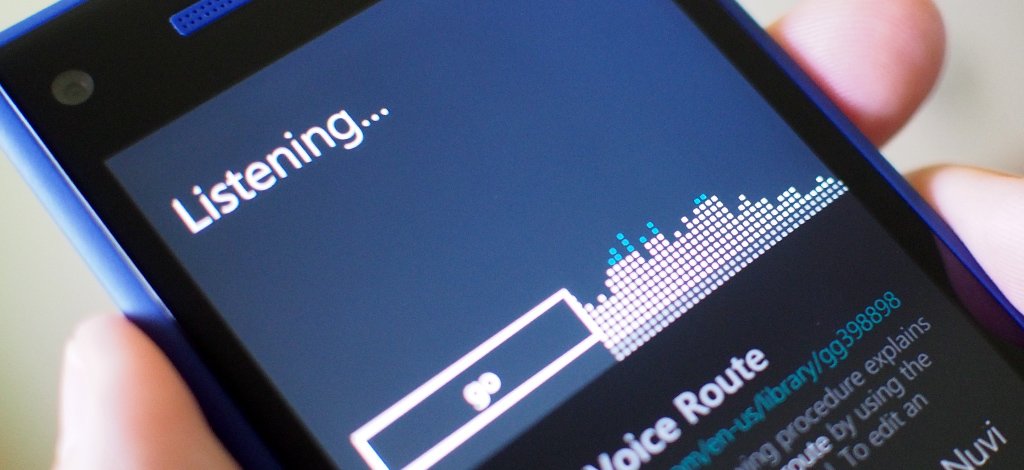

CONCLUSION
We're seeing glimpses of the future of connectedness today. Parts of the developing world are getting their television delivered seamlessly over IP, as are a surprising number of Frenchmen. It seems like a new company every week announces a new smartwatch with new features designed to inform, connect, motivate, and delight.
We have smart assistants like Siri and Google Now answering our queries and prompting us unasked with information we didn't even have a chance to think about needing. And our cars are monitoring the road, keeping us in our lanes and slamming on the brakes in an emergency faster than we could ever hope to.
But we don't yet have that pure internet-delivered television or that useful, attractive, long-lasting, smartwatch. There's no all-knowing, all-accessing, all-prompting, all-sarcastic digital assistant in our lives and there aren't yet fleets of self-driving cars to usher us from point-to-point in comfort, safety, and speed.
But it's all coming, some of if sooner than we might even realize. The future's looking like an exciting time for connected technology.

